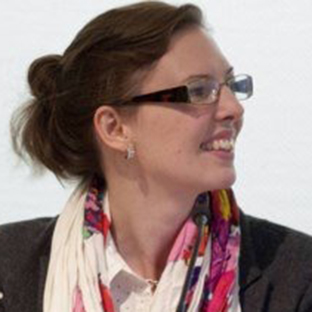The widely shared theory that there are ‘six degrees of separation’ between us and every other human being on the planet (that’s seven billion, and counting) is awe-inspiring to reflect on. Regardless of whether the ‘six degrees’ theory is fact or fiction, the truth remains that a web of teeming connections intricately links us to one another.
The strength that comes from our networks and relationships can be used to powerful effect, particularly as advances in technology bring us ‘virtually’ closer, and more widely connected to one another, than ever before. The power of connecting with one another was central to the RSA’s recent summit in Athens, exploring citywide approaches to refugee education. The summit was convened by the RSA and supported by the Educational Collaborative of International Schools (ECIS), ACS Athens (American Community School Athens), The World Innovation Summit for Education (WISE) and the British Council – all significant collaborative networks in their own right. The summit provided a valuable opportunity to strengthen pre-existing connections, as well as forge new global links amongst experts, education professionals, policy-makers, international networks and local practitioners.

A powerful illustration of the strength of networks is demonstrated by the connection that the RSA made, prior to the summit, with Hope-School in Skaramagas refugee camp, on the outskirts of Athens. After connecting through Facebook we were one step away from emailing and chatting over the phone with the co-ordinator of the Hope School, Syrian national, Deyaa Orfali. We heard that the Hope School was set up by a group of young professionals living in the camp who wanted to provide the young people with an education.
They now have over 600 children in attendance at the school, operating out of shipping containers within the camp. The school teaches a range of subjects including Arabic, English, maths, art and sport. Deyaa and a colleague attended the summit and their insights and reflections were invaluable. They were able to guide our understanding of their situation, and that of the children they teach, and in turn they received offers of resources, connections and assistance from the international schools, their collaborative networks and delegates.

Displacement of people and their communities disrupts networks and connections in a brutal, chaotic way. Families are separated, friends and collaborators are divided and progression in education and training is stalled. We know that the road to recovery and reparation will be long and drawn out. As Gordon Brown pointed out in a recent article in the Guardian, the average time out of a country for a refugee is well over a decade. This is likely to jeopardise the entire education of countless young people. A key step in the road to recovery will be to find ways to foster links, re-establish connections and grow new networks. Aligned to this is the sharing of good practice within and between cities.
At the summit we heard countless examples of good practice and inspirational works supporting refugee education from all over the world. These included:
Citywide approaches:
The City of Learning model is a citywide framework where a city adopts a culture of learning in collaboration with schools, colleges, libraries, museums, workplaces, as well as youth and community organisations. Learners of all ages access opportunities through digital technologies, which guides them to relevant learning opportunities in the city and online. Progress can be tracked in a variety of ways, including through open digital badges (an online and shareable recognition of learning). The idea for this initiative takes its roots from the pilot project, Chicago City of Learning (CCOL) which is the first effort of its kind to take place in a major city in the United States.
Another influential citywide approach is ‘double-shift’ classrooms in Lebanon, which operate on a timeshare model allowing a greater number of children to use school facilities. Edinburgh Direct Aid is delivering textbooks in Arabic to one school, and have offered to fund timeshare projects across the country.
Innovation in technology:
Technological advances help to overcome practical barriers to providing resources in schools. Initiatives like Ideas Box and BRCK use multi-media technology to provide access to education resources, even in remote areas by incorporating a power generator.
Creative approaches to learning:
Whilst acknowledging that basic skills are fundamental to refugee education, there is growing awareness of the importance of creative expression and psychosocial support for refugee children and their families. Initiatives such as the comics library at the Athens Impact Hub and the Self-Organised Learning Environment at the Cube, Athens provide creative learning opportunities. They also provide crucial opportunities for supporting interim, and longer term, integration.
The refugee crisis is overwhelming in its enormity and can seem intractable in its complexity. Leveraging the power and strength of our networks and connections is perhaps one of the best ways to provoke lasting change. The RSA is founded on principles of sharing and at its heart is a network of dedicated and well-connected fellows. Our on-going work investigating citywide approaches to refugee education will continue to share good practice and explore new opportunities to create reciprocal networks of exchange. In the words of the Dalai Lama: “Just as ripples spread out when a single pebble is dropped into water, the actions of individuals can have far-reaching effects.”
Are you working on a project or part of an initiative that works on Refugee Education? Please email or contact Selina Nwulu at selina.nwulu@rsa.org.uk to let us know more about it.
Alice Sachrajda is an RSA associate. She also works as a freelance creative researcher and storyteller and is a trustee of refugee and migrant charity, Counterpoints Arts. Her website can be found at: www.alicesachrajda.com.

Be the first to write a comment
Comments
Please login to post a comment or reply
Don't have an account? Click here to register.